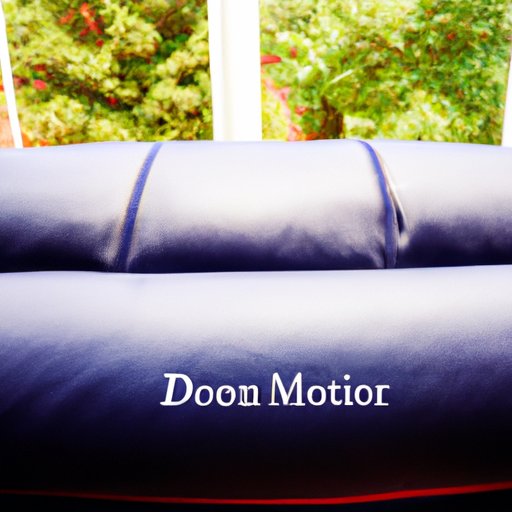Introduction
Donating your body to science is a unique way to contribute to society and make a lasting difference. It can help advance medical research, provide invaluable teaching opportunities for future generations of doctors, and benefit the greater community. In Maryland, there are specific laws and regulations that must be followed when donating your body to science. This article will provide a comprehensive overview of the process for residents of Maryland who wish to donate their bodies to science.
Research Maryland’s Anatomical Gift Law
The first step in donating your body to science in Maryland is to thoroughly understand the state’s Anatomical Gift Law. This law governs the rights and obligations of individuals who choose to donate their bodies to science. It outlines what types of anatomical gifts are allowed, who can donate, and how the donation process works. It also details the legal responsibilities of the donor, recipient, and any other parties involved in making the donation.
Contact a Local Medical School or University for Information
Once you have familiarized yourself with Maryland’s Anatomical Gift Law, it is important to contact a local medical school or university for additional information. These institutions typically have resources available to answer any questions you might have about the donation process. They can also provide information on the types of research projects that your donation could contribute to and how your body may be used after it is donated.

Contact Local Hospitals or Funeral Homes for Assistance
In addition to contacting a local medical school or university, it can also be helpful to contact local hospitals or funeral homes for assistance with the donation process. They can provide guidance on the necessary paperwork and documentation that need to be submitted in order to make a legally binding donation. They can also provide information on the transportation of your body after death and any fees associated with the donation.
Consider Becoming a Member of an Organization Dedicated to Fostering the Donation of Bodies to Science
There are several organizations throughout the United States that are dedicated to fostering the donation of bodies to science. These organizations often offer educational materials, support networks, and other resources to those interested in donating their bodies. Becoming a member of one of these organizations can provide additional information and support throughout the donation process.
Fill Out and Submit Necessary Forms and Documentation to Make a Legally Binding Donation
Once you have decided to donate your body to science, it is important to fill out and submit all necessary forms and documentation to make a legally binding donation. These forms typically include a signed consent form, a signed release form, and a copy of your death certificate. It is important to note that these forms must be signed by both the donor and two witnesses in order for the donation to be considered legally binding.

Talk to Family Members and Friends About Your Decision to Donate Your Body
It is also important to talk to family members and friends about your decision to donate your body to science. This conversation can be difficult, but it is important to explain why you are choosing to make this donation and how it will benefit others. It is also important to provide reassurance that all necessary arrangements will be made for transporting your body after death.

Make Arrangements for Transporting Your Body After Death to the Appropriate Facility
Finally, it is important to make arrangements for transporting your body after death to the appropriate facility. Depending on where you choose to donate your body, this may require contacting a local hospital, funeral home, or other organization. It is important to discuss any fees associated with the transportation of your body and to make sure that all necessary paperwork is completed prior to your death.
Conclusion
Donating your body to science in Maryland is a unique way to make a lasting difference in the world. It can help advance medical research, provide invaluable teaching opportunities for future doctors, and benefit the greater community. By understanding Maryland’s Anatomical Gift Law, contacting local medical schools and universities for information, contacting local hospitals and funeral homes for assistance, considering membership in an organization dedicated to fostering the donation of bodies to science, filling out and submitting necessary forms and documentation, talking to family members and friends about your decision, and making arrangements for transporting your body after death, you can make a legally binding donation that will benefit society.
(Note: Is this article not meeting your expectations? Do you have knowledge or insights to share? Unlock new opportunities and expand your reach by joining our authors team. Click Registration to join us and share your expertise with our readers.)
